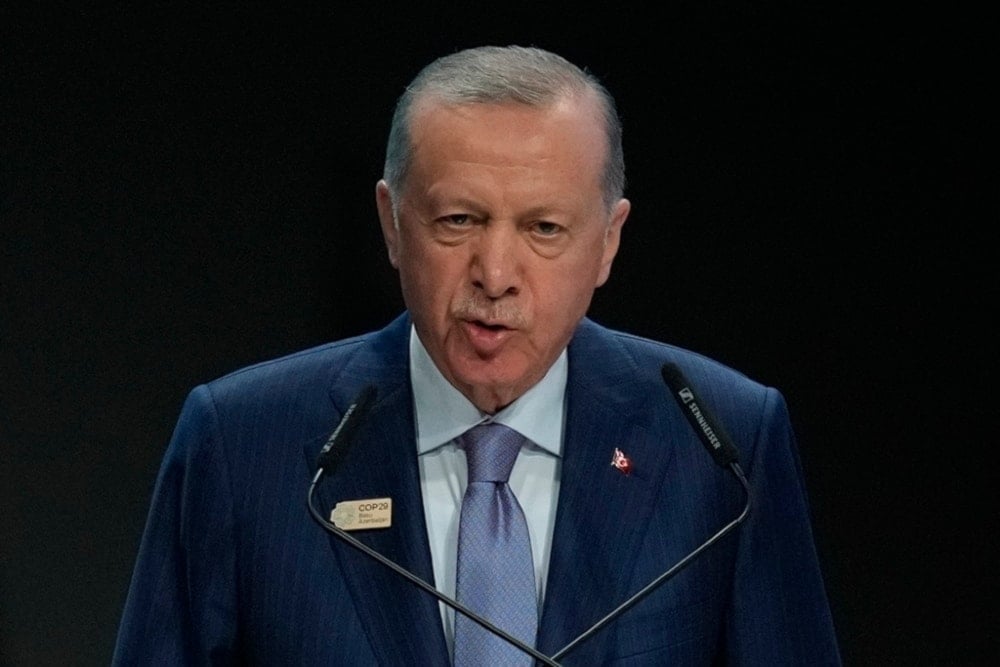Erdogan vows to work toward a Syria free of terrorism
In a conversation with NATO Secretary General Jens Stoltenberg, Erdogan emphasizes Turkey's dedication to ensuring Syria is governed by its own people.
-

Turkish President Recep Tayyip Erdogan speaks during a plenary session at the COP29 UN Climate Summit in 2024 in Azerbaijan. (AP)
Turkish President Recep Tayyip Erdogan reaffirmed on Tuesday that Turkiye will make every effort to help build a Syria free from terrorism, following the Syrian opposition's takeover of power in Damascus.
In a phone call with NATO Secretary General Jens Stoltenberg, Erdogan emphasized that "Turkiye will do its utmost to build a Syria free of terrorism," stressing the importance of Syria being governed by its own people.
Erdogan also reiterated Turkiye's longstanding position of supporting Syria's territorial integrity and stability since the onset of the conflict. He added that Turkey is committed to contributing to Syria's reconstruction in the aftermath of the war.
Turkey eyes stability in Syria: Ministry
In a related context, Turkish Foreign Ministry spokesperson, Samir Kawkouglu, announced that Turkey is continuing its efforts to restore stability in Syria through ongoing communications with international partners and UN Special Envoy to Syria, Geir Pedersen.
Kawkouglu emphasized the critical role of effective international support in achieving peace and stability in Syria, following over a decade of conflict.
Addressing UN Envoy Pedersen’s call for political talks in Geneva, Kawkouglu stated, “International support is crucial for restoring stability and peace in Syria after 13 years of war. Turkey will maintain its cooperation with regional countries, based on this approach.”
He also underscored Turkey’s desire to create an inclusive government that represents all sectors of Syrian society, emphasizing that this process must be free from any sense of vengeance following the fall of the Syrian regime.
UN envoy calls for halting Israeli bombing in Syria
Earlier today, UN Special Envoy to Syria Geir Pedersen called for an immediate halt to Israeli bombings and troop movements in Syria.
He also warned of the "risk" of further conflict in Syria if all ethnic groups were not included in the post-Assad transition.
Pedersen noted that Syria could potentially see an end to sanctions, the return of refugees, and the implementation of justice, as long as "good arrangements" were made during the power transition.
This comes after the armed groups took over the Syrian cities, ousting President Bashar al-Assad on Sunday.
Read more: Turkiye defines new priorities for Syria policy, backs new regime

 2 Min Read
2 Min Read








